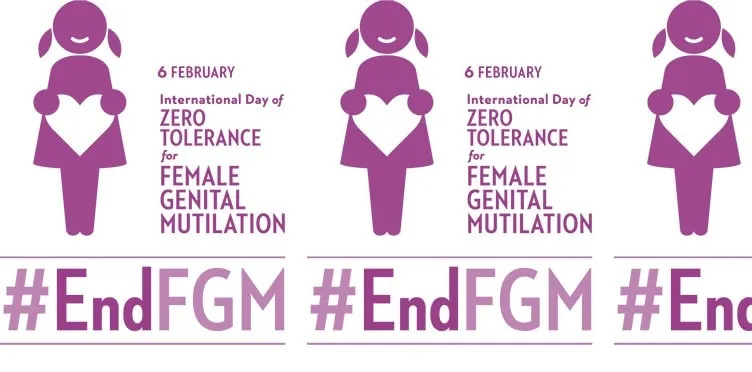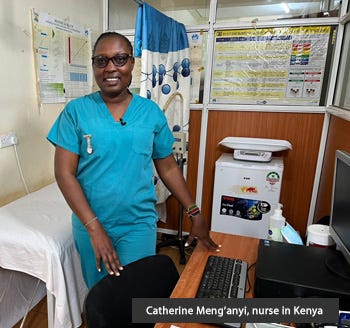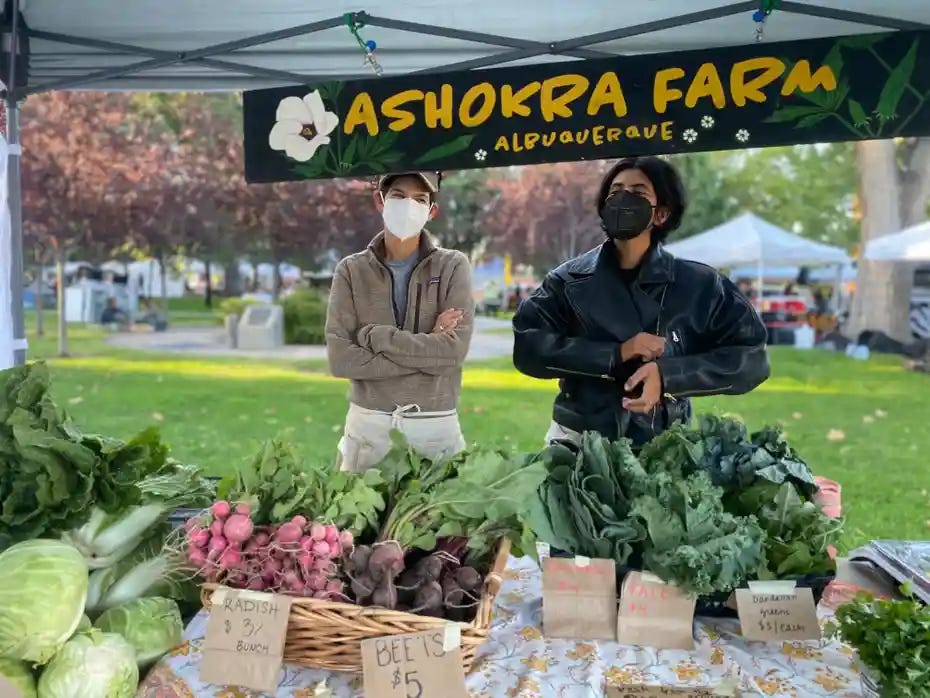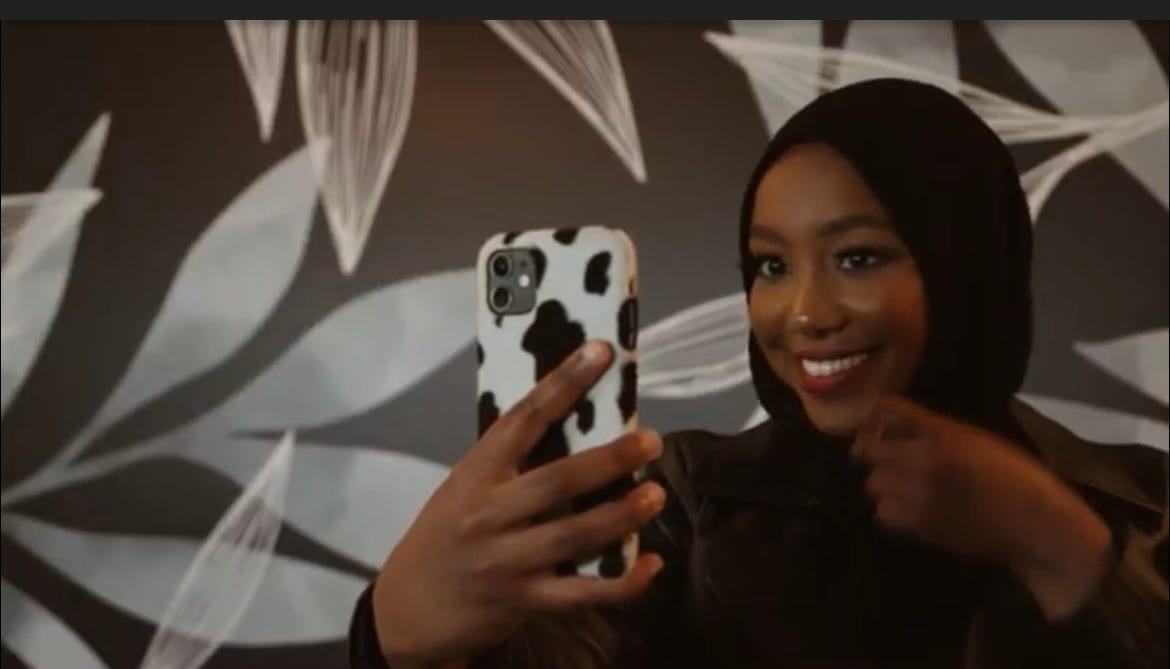Global Roundup: Kenya FGM Advocate, Iraq Woman Death, Queer BIPOC Farms, Short Film on Muslim Women & Hijab, South Africa Queer Jewellery Designer & Sculptor
Curated by FG Contributor Samiha Hossain
Today is the International Day of Zero Tolerance for Female Genital Mutilation. Catherine Meng’anyi is a survivor, nurse and advocate in Kenya who is determined to end FGM in her lifetime.
Through her efforts, Meng’anyi has reached more than 25,000 people from her community by advocating against FGM in a culturally sensitive way. She has supported more than 200 girls out of FGM and early marriage.
Meng’anyi shares how when she was 12, her parents, who are well-educated, decided to go along with their culture and community and get her cut by a healthcare provider. She says she still carries the pain and trauma.
For a long time, all I could think about was how I should raise my voice and prevent others from going through the same trauma. I have younger sisters, and I felt I needed to do something to protect them. From the age of 15, I spoke up to my family, telling my parents that my sisters should not undergo the cut. It worked. From there I spoke to close relatives. Then, when I finished school, I took the opportunity to speak up in my local community against the providers who are still practicing the cut in secret. - Catherine Meng’anyi
Meng’anyi says she has built a strong network of people she can call to for help when trying to prevent FGM or early marriages. She also always wanted to build up a network of survivors of women who underwent FGM and need support, as she believes sharing stories helps end the practice. In order to end FGM, she emphasizes the need for men to also stand up and say these cultural norms do not make sense.
I believe person-centered communication is the very best approach when trying to change a person’s values. Often it starts with value clarification for providers themselves to help them understand that what they thought was correct, like FGM, is actually wrong and harmful. Usually once someone understands the dangers of something, it's easy to change their mind. -Catherine Meng’anyi
CW: gender-based violence
The death of a young YouTube star at the hands of her father has sparked outrage in Iraq. Tiba al-Ali, 22, was killed by her father on January 31 in the southern province of Diwaniya due to a dispute regarding him being unhappy with her decision to live alone in Turkey. Police had attempted to mediate the family dispute which dated back to 2015.
Al-Ali had gained a following on YouTube, where she posted videos of her daily life and in which her fiance often appeared. Her death has sparked uproar among Iraqis on social media, who have called for protests in the capital, Baghdad, on Sunday to demand justice in response to her death.
Women in our societies are hostage to backward customs due to the absence of legal deterrents and government measures – which currently are not commensurate with the size of domestic violence crimes. -Ala Talabani, politician
To date, no law in Iraq criminalises domestic violence. A draft domestic violence law was first introduced to parliament in 2014, but progress has stalled amid widespread political opposition from legislators who believe it would “erode Iraq’s social fabric.”
Amnesty International condemned the “horrific” killing, saying “the Iraqi penal code still treats leniently so-called ‘honor crimes’ comprising violent acts such as assault and even murder.”
Until the Iraqi authorities adopt robust legislation to protect women and girls … we will inevitably continue to witness horrific murders. Aya Majzoub, Amnesty’s deputy director for the Middle East and North Africa
Ashokra farm in New Mexico, US is a queer-, trans- and people-of-color-owned vegetable farm.
In their past work experiences, famer Anita Adalja and their colleagues have each faced discrimination – either as queer farmers or people of color. Sometimes, that came in the form of being demeaned by owners who did not respect their skills or who took their photo for promotional purposes; other times it came in the shape of co-workers using racial slurs. At Ashokra, they are trying to challenge the structures that permitted those abuses: by caring as deeply for the land as they do for one another, implementing a zero-tolerance policy for abusive language and adopting a nonhierarchical structure.
[Ashokra is] trying to embody values and create a space that we haven’t seen on farms that we’ve worked at. A place where we have dignity, where we can feel safe, where we can feel like we can be our authentic selves. -Anita Adalja
Queer farmers across the country – and throughout history – have long tried to access land where they can live out their values. But that aim is often complicated by issues of safety and access to capital, which is why many queer farmers have come together to collaboratively challenge the structure of the traditional family farm.
In the 1960s and 70s thousands of women moved out on to the land to form more than 150 lesbian separatist communities. Sometimes called womyn’s land, lesbian land or landdyke settlements, many of these groups aimed to form communities away from men and the patriarchal and heteronormative structures that governed society. Although many of these spaces still exist today, their history is not well known, even within the queer community.
Today, a new generation of queer farmers, like the team at Ashokra, are continuing to organize community farms around shared values, like a commitment to anti-capitalism, cooperative living and each other’s safety. But queer farmers can struggle to access land for a variety of reasons, including being estranged from their biological families and cut off from generational wealth or not being counted by government agricultural censuses. In the absence of government or institutional support, many queer farmers have devised alternative models for accessing land by working with one another based on collective ownership.
Alongside their work at Ashokra, Adalja is also the founder and program manager of Not Our Farm, an online storytelling project that they started in 2019 to “uplift and share stories of workers on farms not their own.” However, it also sheds light on abuses that happen on farms like inconsistent access to bathrooms, earnings far below the minimum wage and the discrimination that many queer, women and POC farmers face daily. Not Our Farm also gives space for farm workers to share the characteristics of their “dream farm,” or what could keep them farming even if they never own their own land.
There’s so much of this country that is arable, beautiful farmland, but that’s not safe for us to even be there. Farming in collectives is not just about the ease of farming and sharing resources, it’s about safety too. -Anita Adalja
The 10th anniversary of World Hijab Day was on February 1 – a day founded in 2013 in the US by Nazma Khan, a Muslim woman, to help foster religious tolerance and provide education by inviting all women to experience the hijab for one day.
A new short film examines misconceptions around the hijab and why some Muslim women in Edmonton, Canada choose to wear the head covering. Amal Mohamud, the filmmaker behind the project, wanted to spread awareness and educate people. For Mohamud, the hijab symbolizes her faith and worship. She wanted people to know many Muslim women are not forced to wear a hijab and choose to do so.
It's kind of like my submission to my God. It represents modesty, morality, privacy, and just being a good person and a good role model. -Amal Mohamud
In the film, Mohamud interviews community advocate Safia Ibrahim and social media influencer Hafsa Bint Yusuf, who has nearly 200,000 followers on TikTok.
Ibrahim has gone through different periods in her life where she has taken the hijab on and off. When she first came to Edmonton, more than ten years ago, she did not wear a head covering. While attending college, she said people would compliment her looks and hair. But about a year later, she decided to wear a hijab again because she wanted to be identifiable as a Muslim. Even though she was in the same cohort, Ibrahim said her classmates would no longer compliment or even talk to her.
According to Statistics Canada, there was a 71 per cent increase in police-reported hate crimes directed toward Muslims in Canada, compared to the year before. In 2020, an Edmonton man attacked a mother and daughter, pushing one of the women to the ground, causing her to lose consciousness. Both had their hijabs torn off during the incident.
Mohamud hopes her film will help diversify Canadian film and television, particularly when it comes to portraying Muslim women. Usually when you see a Muslim woman on TV, Mohamud said, it is because she has been attacked. But her film is upbeat, modern and relatable.
I think we've never really had a documentary that just solely focuses on the hijab. It's a part of our identity. We are teachers, we're educators, we're influencers, we're filmmakers. We have our own personality. -Amal Mohamud
Self-taught jewellery designer and sculptor Githan Coopoo describes his art as obnoxious, queer and necessary. Coopoo uses clay to make statement pieces that speak to his lived experience as a queer South African of Indian descent who happens to adore all things bright and beautiful.
I'm a very open person. I also use the physical act of making as a grounding tool; a process which makes me feel engaged with myself and thus in tune with the various conversations going on in my mind. In a way, making sculptures helps me to keep up with myself. -Githan Coopoo
Originally focused on volume, opulence and fragility, Coopoo’s clay jewellery has been shown at Fashion Weeks internationally, including New York, Paris, Nigeria and Russia. In 2022, Coopoo was recognised by the British Fashion Council in their New Wave: Creatives awards category. Expanding upon his practice, recent years have seen the production of larger-scale works, best described as false ceramics. These works have predominantly taken the form of tiles, vases and handbags which use text to communicate simple but pointed messages of a queer tonality that span from sarcastic to intimate in timbre.
Practice more radical empathy, and in doing so welcome joy into your life. Be grateful you are imperfect, and then notice life is never laughing at you but inviting you to laugh with it. -Githan Coopoo
For the upcoming Investec Cape Town Art Fair’s Tomorrows/Today Section, Cape Town artist Githan Coopoo will showcase a collection of his immediately recognisable amphora-styled vessels, in a series titled Unrealistic Expectations. Each of the clay forms will display unique texts and various sentiments that reflect upon the titular trope of the show: the unrealistic expectations, phases and states of queer intimacy and desire.
Samiha Hossain (she/her) is a student at the University of Ottawa. She has experience working with survivors of sexual violence in her community, as well as conducting research on gender-based violence. A lot of her time is spent learning about and critically engaging with intersectional feminism, transformative justice and disability justice.
Samiha firmly believes in the power of connecting with people and listening to their stories to create solidarity and heal as a community. She refuses to let anyone thwart her imagination when it comes to envisioning a radically different future full of care webs, nurturance and collective liberation.







